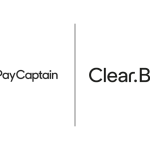
In the UK being a cleaner is a perfect way to tap into a major market. The cleaning sector contributes more than £24 billion to the UK economy, which offers jobs to over 700,000 workers, according to new estimates published by the British Cleaning Council.
Want to become a self-employed cleaner? To get you started with this low-cost business concept, we’ve assembled a step-by-step guide.
Identify your Niche
You need to determine what type of cleaner you want to be and what market you’ll be working in. There are three major industries of cleaning: Industrial, domestic, and specialist. Your business preference would generally rely on your current knowledge and know-how but be sure to do some research. A key factor to consider the relative size of your markets.
Check qualifications
Domestic cleaners don’t need any credentials however, for specialist cleaning jobs you may well require certification and industrial cleaning equipment. Contact the British Institute of Cleaning Science for more information about cleaning qualifications.
Write a plan
You should consider drafting a company plan before you go any further. This guide helps you create a solid base while you launch and expand your business. You’ll need to perform market analysis within your strategy, develop financial strategies, and map out the marketing channels.
Check for consumers
Now it’s time to pitch! The way in which you attract clients depends on your chosen market. When you’re a house cleaner, for example, it could be as easy as knocking at doors. You can also find more sophisticated marketing tactics, though, which you can learn about in various guides to starting a cleaning business which can help you grow.
Plan for growth
If you’re a homemade one-man-band cleaner, you may desire to remain small. Cleaning businesses, though, have the ability to evolve from single-person operations into small businesses that hire several individuals. When your company expands, you may search for additional cleaning workers to help distribute the workload. When you do so, make sure you are mindful of the new minimum wage regulations, and the duty to take out the compensation insurance for employers, which we discuss more on below.
Tips to Keep in mind
Be Ready for A challenge
It can be difficult to start a company from scratch, but it can also be immensely satisfying. Learn how to handle fluctuations in your profits and get ready to take the burden of hiring employees as your company expands. Above all, don’t be disheartened when things are tough.
Get Insurance
Your clients would like to be sure that if anything goes wrong when you’re working in their properties you’re covered. And remember that if you are hiring people, you are legally obligated to take out employers’ liability insurances.
Self-employed cleaner legal obligations
As with every other self-employed occupation, self-employed cleaners have a range of legal responsibilities, particularly in tax matters. You will file with HMRC as self-employed and you will need to complete an annual self-assessment tax return. You will have to pay the tax bill by January 31 yearly and make a payment on account every July 31st.












